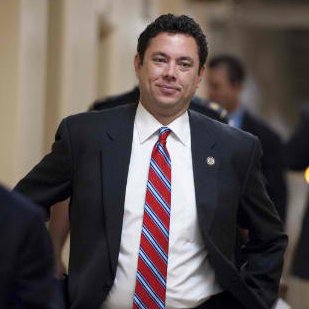Pennsylvania Internet Gambling Hearing Recap

 Pennsylvania’s House Gaming Oversight Committeeheld a hearing with industry executives on Thursday to discuss the possibility of legalizing online gambling in the Keystone State. Legislators specifically discussed Representative John Payne’s House Bill 649, which would authorize any interactive internet games approved by the gaming control body.
Pennsylvania’s House Gaming Oversight Committeeheld a hearing with industry executives on Thursday to discuss the possibility of legalizing online gambling in the Keystone State. Legislators specifically discussed Representative John Payne’s House Bill 649, which would authorize any interactive internet games approved by the gaming control body.
Unlike the unhinged rhetoric spouted at the recent Congressional hearingfor Congressman Jason Chaffetz‘s (R-Utah) anti-internet gambling bill, the Restoration of America’s Wire Act, clearer heads prevailed.
The one exception was Las Vegas Sands spokesman Andy Abboud, who predictably parroted CEO Sheldon Adelson‘s anti-iGaming stance through misrepresentations and downright falsehoods. “I am not sure who Las Vegas Sands is trying to fool,” said Poker Players Alliance Executive Director John Pappas in a statement. “Their Pennsylvania casino has been fined numerous times for allowing underage children to wager and they actively promote mobile casino gaming and sports betting at their Nevada properties.”
Indeed, one claim that has been repeated by Adelson and his minions is that online poker operators “can’t know their customers,” a flaw which, according to them, could lead to underage gambling.
But as one technical expert for iGaming security company GLItestified, fraud controls implemented can tell you exactly who the customer is. Even if someone could successfully circumvent those measures, they would still not be able to cash out any winnings. At a land-based casino, he pointed out, any underage player could simply pass his chips to another patron, who could then cash them out instead.
Furthermore, the GLI witness questioned the “controversy” surrounding internet gambling security. He noted that “bulletproof” iGaming fraud controlsalready exist and are widely used in gambling games like progressive slots, which add a portion of each bet to a communal jackpot and can be triggered by players in other casinos or states.
The measures used by regulated internet gambling sites, in fact, are already in place today ensuring the security of our online banking transactions. “Imagine taking the internet out of any industry and see what happens,” he said.
 Next up was GeoComply official Lindsay Slater, who presented a real-time demonstration of geo-locations taking place in Delaware, Nevada, and New Jersey. At one point she zoomed in on a Garden State Starbucks and showed the pinpoint accuracy of the company’s software by noting that they could detect two online gamblers who were playing on the opposite sides of the coffee shop.
Next up was GeoComply official Lindsay Slater, who presented a real-time demonstration of geo-locations taking place in Delaware, Nevada, and New Jersey. At one point she zoomed in on a Garden State Starbucks and showed the pinpoint accuracy of the company’s software by noting that they could detect two online gamblers who were playing on the opposite sides of the coffee shop.
RAWA sponsor Chaffetz (pictured), on the other hand, has continually ignored explanations of how the technology is implemented. He instead has made statements in the past that “any 15-year-old kid could find a way to get around this.” Slater’s testimony highlighted the complexity of the company security software, revealing that 350 checks are made when a customer attempts to be geo-located. This technology is already in use by companies like Apple, Google, and Facebook.
Pennsylvania is considered to be one of the next states to legalize online gambling. The Commonwealth has taken a slow and steady approach to regulating the industry, with many hoping that iGaming will create a new revenue stream that could ease the tax burden placed on Keystone State residents. Check out PocketFives’ Pennsylvania poker community.
Earlier this week, the House Gaming Oversight Committee passed a resolution by a vote of 18-8 that urges Congress to oppose the Restoration of America’s Wire Act. “The passage of this resolution sends a strong and clear message to the US Congress that Pennsylvania has the right to make their own legislative decisions about licensing and regulating online poker without the partisan influence of Washington politics,” said Pappas.
Want the latest poker headlines and interviews? Follow PocketFives on Twitterand Like PocketFives on Facebook.




